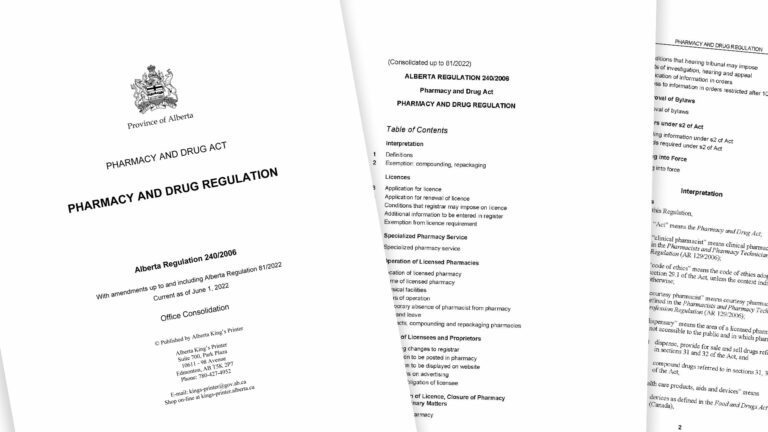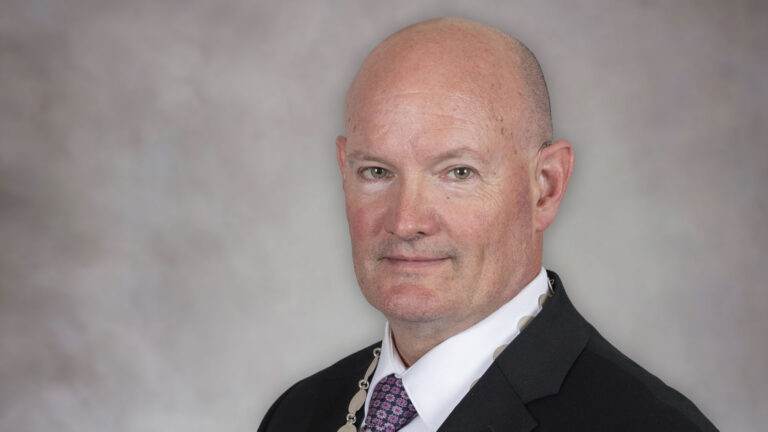
The standards referenced in the article below are out of date as of February 1, 2025. Please refer to ACP’s new standards for up-to-date information.
The June 1, 2022, edition of The Link provides a summary of amendments made to the Pharmacy and Drug Regulation (PDR). This is a reminder about some of the significant amendments, including additional insight about them.
Pharmacy owners and proprietor’s representatives
The amendments provide a definition of “proprietor’s representative” (s1(1)(i)) and provides the college authority to establish requirements for pharmacy owners and proprietor’s representatives. Since the original regulation came into effect in 2007, the profile of pharmacy ownership has shifted substantively. Many owners and proprietor’s representatives do not have a background in pharmacy practice, yet decisions that they make can have a significant impact on practice. The amended regulation enables the college to establish requirements for owners and proprietor’s representatives to make them more aware and better prepared to fulfill their responsibilities under the legislation, and to be more effective in supporting pharmacy licensees and teams in their professional practice. (s3(1.01-1.04). Notice is required when a proprietor’s representative will change (s20(1)(d). And the name of the proprietor’s representative must be posted on any website used by the pharmacy (s23(g)).
Advertising
Section 1(2)(c) of the regulation defines “specialized pharmacy service” as a service within the practice of pharmacy that, in order for it to be provided safely, requires any one or more of the following:
- special equipment;
- (ii) compliance with specialized standards; and
- (iii) that it be provided by a clinical pharmacist who is authorized to use the title specialist pursuant to the Pharmacists and Pharmacy Technicians Profession Regulation (AR 129/2006).
Section 7 of the PDR addresses limitations on when a pharmacy can be held out as offering a specialized pharmacy service. The advertising restrictions under s24 of the regulation have been enhanced, requiring that a licensee or proprietor not “claim to offer or imply that it offers specialized pharmacy services or that it is a specialist unless that specialized pharmacy service or speciality is authorized by the registrar pursuant to an approval by the council.” (s24(2)(c))
The advertising restrictions in the regulation were further enhanced, requiring that “A licensee or proprietor must not solicit the transfer of prescriptions or the transfer of care of patients.” (s24(7))
While it is reasonable for the public to know that their care can be transferred, care should be taken as to how this is promoted or advertised, and any direct solicitation is prohibited. Pharmacy teams should focus on building strong relationships with their clients, and not disrupt care by encouraging that it be transferred. While pharmacies can continue to advertise the transfer of prescriptions/care to the public, a licensee or proprietor cannot directly solicit an individual or group of individuals to transfer their care.
A nuance here is that a licensee or proprietor can respond to an individual’s inquiry about transfers, and a licensee or proprietor can discuss a transfer (or consolidation) of prescriptions/care with an individual for whom they provide other pharmacy services, but they must not solicit a transfer from a new individual or potential client.
Advertising is a communication made about a pharmacy’s available services and is more general and less targeted in nature. It aims to communicate to the public as a whole.
Soliciting is an advertisement that is targeted to a specific person or group. Soliciting is more pointed and direct. It tends to have a specific target and may aim to poach business from competitors.
Pharmacy teams
Pharmacy licensees have a responsibility to ensure that their pharmacy team is adequately staffed to deliver the services safely and effectively they provide. Section 25(e) of the regulation was amended to recognize that the pharmacy team may include pharmacists, pharmacy technicians, other regulated health professionals and unregulated staff. The Standards of Practice for Pharmacists and Pharmacy Technicians address supervision requirements. The supervision standards have been recently reviewed and changes will be proposed in the new standards that are being proposed.
Where a pharmacy employs another regulated health professional on the pharmacy team, the individual must comply with the standards and code of ethics of their profession; however, they must also comply with the Standards for the Operation of Licensed Pharmacies, including any policies and procedures established by the pharmacy licensee.
Criminal record checks
Security of drugs and patient records in a pharmacy is critical. Therefore, just as the college requires a criminal record check of all regulated members, the licensee must ensure “a criminal record check from all unregulated individuals engaged by the pharmacy who support or provide assistance in the provision of a restricted activity or the delivery of a drug to a patient.” (s25(e.1))




